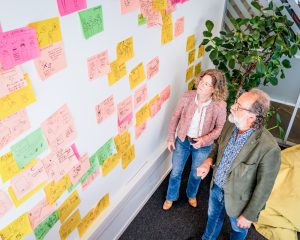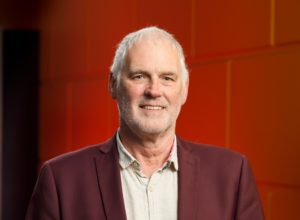Virtual co-location: the real value added
Unexpected encounters are important to stimulate creativity, connect people from different backgrounds. This is important for new ideas, new innovations. The challenge, of course, is how to harness this all in this virtual age. For instance, imagine a kind of virtual marketplace where you can facilitate the exchange of ideas, then you could of course, unexpectedly, come across a cool and practical idea.
Most of us will think about co-location as a physical concept of people working in the same space or building. In respect to innovation, one might think about an R&D division or an innovation campus (like the former Natlab or the MIT Medialab). That is what we know works, and has delivered innovations the way we know them.
Multidisciplinary and multidimensional
Today, the demand for innovation is changing rapidly. Most companies cannot continue to innovate the way they did for years, nor can they innovate within their known product lines. The opportunities are being created where multidisciplinary co-creation occurs. The complexity of today’s economy, and the potential disruption, for good or for bad, of exponential technologies force companies increasingly into open innovation. Which means that co-location becomes more multidimensional.
Of course, multidisciplinary open innovation teams, working in co-creation to come up with innovations for problems that matter and that we need to solve, still benefit from sitting together, meeting, exchanging and empathizing. But Corona has shown us that this can be usefully extended by virtual co-location, opening up a multitude of additional possibilities that we did not imagine. Virtual co-location is not just bringing co-location into the virtual world; it is redefining it in order to make optimum use of the collective intelligence of the co-creators.
Extending the boundaries
Then space becomes more than just a physical concept; it becomes an idea, a way of working together, sharing and co-creating in ways we never did before. The quality and diversity of the ecosystem at the co-location, as well as the facilitation of the open-innovation teams, all become part of the concept of co-location. Suddenly, we can do so much more. We exponentially extend what we could have done before only in a physical space. Virtual co-location extends the scope of the possible.
Corona has, paradoxically, given us an opportunity to go beyond what we have done before. It can be a catalyst for co-creation. Become part of this new co-location and share your thoughts and ideas.

